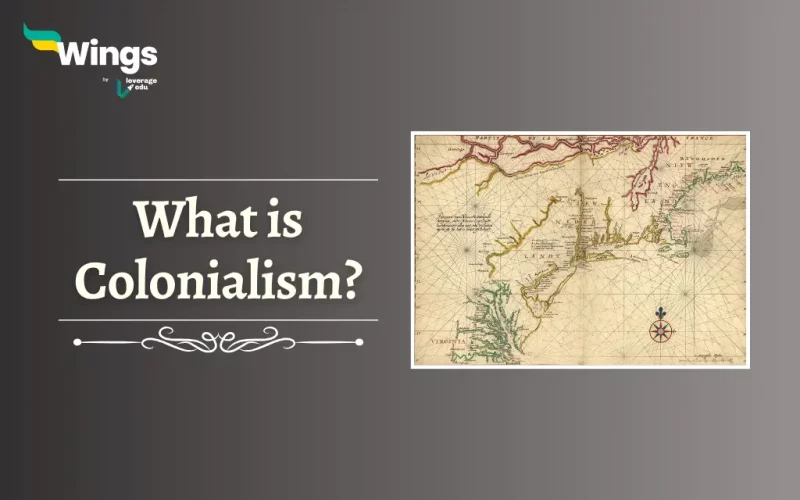Hey, guys! Mr. Owl is here. I see that you want to know about ‘Colonialism’ Hootfully, I’ll be of help to you! Since we owls are very wise. If you scroll further down this blog, you’ll see all the information you will need!
Colonialism is not just about rulers and exploitation. It is a bit like a grand adventure where strong folks aim to grab more power and wealth by disguising themselves as help. In this blog, we’ll talk about Colonialism in simple language, its real meaning, and an example.
Table of Contents
What is Colonialism in Simple Terms?
Imagine your neighbour suddenly taking over your backyard without asking for your permission. They start making decisions about how you should use it, and you have no say in the matter. That is Colonialism.
Colonialism is when one group or country (the colonisers) takes control of another group or country (the colonised) and decides how things should run. Moreover, it is like a big brother telling the younger one what to do.
Must Read: What Is Nationalism? Definition, History, and Significance
What Does Colonialism Mean?
Colonialism goes way back in history, like a bad habit that was hard to break. The colonizers often believed they were superior and had the right to rule over the colonized. They would roll into a new place, plant their flag, and start calling the shots.
One of the most famous examples of colonialism is when European countries sailed across the seas and conquered lands in Africa, Asia, and the Americas. Additionally, they brought their laws, religion, and way of life, often disregarding the rich cultures and traditions of the native people.
Think of it like this: You visit a friend’s house, and instead of respecting their house rules, you make your own rules and expect them to follow. That is how colonizers treated the lands they conquered.
Also Read: Difference between Colonialism and Imperialism
What are the 4 Types of Colonialism?
Furthermore, here are the 4 Types of Colonialism:
- Settler colonialism: This involves large-scale immigration by settlers to colonies, usually motivated by religious, political, or economic reasons.
- The goal is to establish a permanent population that replaces or marginalizes the indigenous population.
- Examples of settler colonialism include the British colonization of North America and Australia.
- Exploitation colonialism: This type of colonialism focuses on the exploitation of natural resources or labour in a colony for the benefit of the colonizing power.
- Surrogate colonialism: This is a less common form of colonialism where a colonial power uses a third party, such as a local ruler or company, to control a territory.
- The ultimate goal is still to benefit the colonizing power, but they may do so indirectly.
- Liberia, which was founded by the American Colonization Society as a homeland for freed African Americans, is an example of surrogate colonialism.
- Internal colonialism: This is a concept used to describe situations where a marginalized group within a country is exploited in a way that resembles colonialism.
- For example, some scholars argue that Indigenous peoples in many countries can be seen as internally colonized.
Also Read: Colonialism in Africa: History, Timelines and More
What is an Example of Colonialism?
Let us take a closer look at an example: India. Back in the day, India was colonized by the British Empire. The British came, saw, and conquered. They ruled India for nearly two centuries, from 1858 to 1947.
During this time, the British imposed their language, laws, and way of life on the Indian people. Furthermore, they also controlled India’s economy, taking valuable resources and sending them back to Britain. The Indians had little say in how their own country was run.
Think of it as someone borrowing your favourite book and then telling you how to read it, or worse, keeping it forever.
Also Read: What is Imperialism: Definition, History, and Significance
Global Impact of Colonialism
Colonialism left a lasting impact on the world. It reshaped cultures, borders, and economies. Many countries that were once colonised are still dealing with the effects today.
- Colonialism reminds us why respecting the rights and cultures of others is crucial.
- It’s like learning from your neighbour’s mistake of taking over your backyard.
- We should celebrate diversity and let each nation write its own story.
In simple terms, Colonialism is like an unwanted guest who overstays their welcome and rearranges your furniture without asking. It is a historical lesson that teaches us about power, privilege, and the importance of treating others with respect.
Kiddos, I’ve answered all your queries with the utmost precision that I was capable of. Now, I’ll be taking my leave, but if you think I might have missed something, do check out the FAQ section or drop a comment. I always respond!
FAQs
Colonialism is a system where one nation extends its control over another region, often for economic and political gain.
Colonialism was prominent from the 15th to the 20th century, during the Age of Exploration and Imperialism.
Colonialism had complex effects, including the exploitation of resources, cultural assimilation, and long-lasting social, economic, and political legacies.
Related Blogs
Lastly, we hope you liked our blog and gained an understanding of What is Colonialism. Moreover, you may even read more blogs and empower yourself with knowledge regarding Civics and Polity!
 One app for all your study abroad needs
One app for all your study abroad needs













